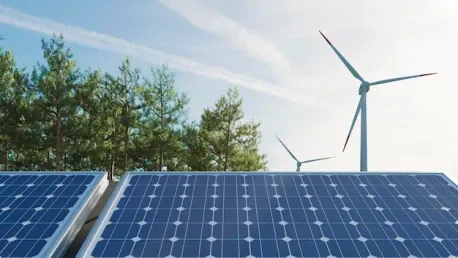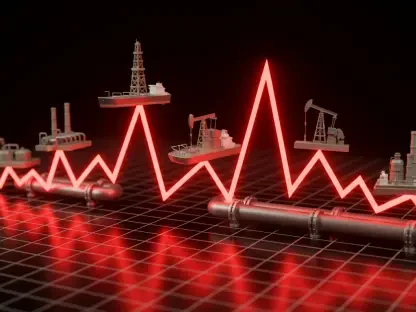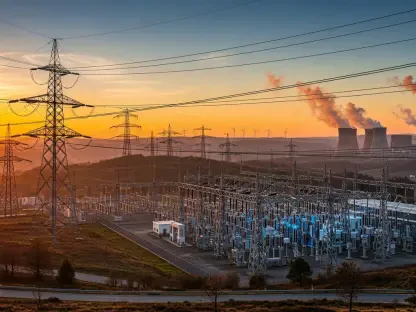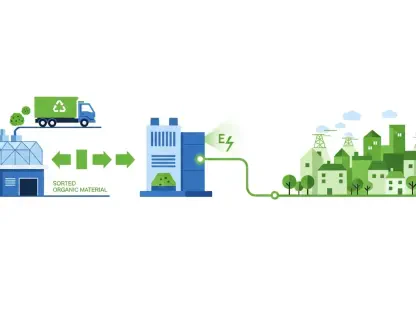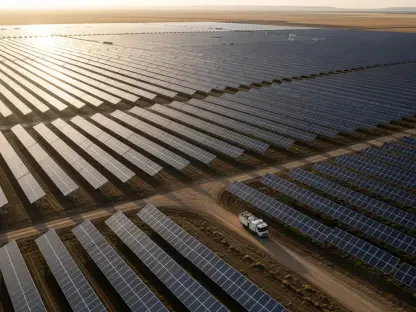The Croatian government has taken a significant step forward in the journey towards sustainable energy by adopting crucial amendments to the law on renewable energy sources and high-efficiency cogeneration. These changes are designed to cater to prosumers, facilitate citizen energy communities, and enhance decentralized energy production, aligning with the European Union’s Renewable Energy Directive. This legislation is poised to bring considerable advantages to citizens, entrepreneurs, and investors alike.
Key Provisions for Prosumers
Transitioning from Net Metering to Net Billing
One of the major changes introduced by the new legislation is the transition from net metering to net billing for prosumers. Previously, prosumers were credited for the surplus electricity they fed into the grid at retail rates, which often resulted in inequitable compensation for their contributions. With net billing, surplus electricity will now be valued more fairly, reflecting a more accurate price for electricity fed into the grid. This adjustment is expected to foster a more sustainable and equitable system by ensuring that grid costs correspond precisely to the actual electricity consumed by prosumers.
Current prosumers have up to ten years to transition to the new net billing scheme, allowing ample time for adjustment. This gradual implementation aims to minimize disruptions while promoting a more balanced and just compensation system. By aligning the costs directly with consumption, the new law incentivizes efficient energy use, ultimately supporting Croatia’s broader goals of sustainable energy management and increased renewable adoption.
Facilitating Remote Self-Consumption
The amendments further bolster renewable energy adoption by enabling electricity production for self-consumption in remote locations, provided that all metering points are registered under a single consumer. This provision is expected to spur investments in decentralized energy production and increase flexibility for renewable energy projects. By allowing remote self-consumption, the law encourages the utilization of renewable sources in areas previously deemed unsuitable due to the lack of direct grid connectivity, potentially unlocking new sites for solar and wind projects.
This shift aligns with global trends toward decentralization in the energy sector, promoting localized energy production and consumption. It empowers consumers to actively participate in the energy market, reducing dependency on centralized power plants and fostering innovation in energy solutions. In addition, this provision supports energy security and resilience, ensuring a more stable and diversified energy supply for the country.
Empowering Citizen Energy Communities
Simplifying Establishment and Operation
Citizen energy communities have received significant attention in the new legislation, with amendments simplifying their establishment and operation. The law aims to promote these communities as vital players in the energy transition by reducing bureaucratic hurdles and providing a clear legal framework for their functioning. By streamlining the process, these measures encourage more citizens to form or join energy communities, thereby democratizing energy production and distribution.
Citizen energy communities allow individuals and local groups to collectively invest in and manage renewable energy projects, enhancing communal benefits and fostering a sense of ownership. They can play a crucial role in driving local renewable energy initiatives, addressing regional energy needs, and supporting Croatia’s renewable energy targets. This empowerment of local communities aligns with the broader European objectives of increased public participation in the energy sector, ensuring a more inclusive approach to the energy transition.
Incentives and Sustainability Measures
A notable regulation introduced under the new laws is that incentives for waste incineration will only be granted if the waste originates from a system of separate collection. This stipulation emphasizes the importance of waste separation, ensuring that biofuel production processes adhere to strict sustainability criteria. The focus on sustainable practices aligns with the overarching goals of reducing environmental impacts and promoting cleaner energy sources.
The legislation also provides a foundation for developing essential electricity infrastructure and storage capacities, integral to effectively integrating renewable energy sources into the grid. By focusing on infrastructure development, the laws address one of the key challenges faced by renewable energy projects—reliable storage and distribution of electricity. These measures aim to strengthen the overall grid infrastructure, ensuring that renewable energy can be harnessed efficiently and reliably distributed across the country.
Balancing Interests and Future Prospects
Comprehensive Approach Towards Sustainability
Minister Ante Šušnjar emphasized that the comprehensive nature of the new laws aims to balance the interests of citizens, the economy, and the energy system. This balanced approach is intended to create a solid foundation for the sustainable development of Croatia’s energy sector, ensuring that all stakeholders benefit from the transition to renewable energy. By fostering a holistic and inclusive legislative framework, Croatia can drive its energy transition goals more effectively while supporting economic growth and energy security.
The consolidated measures presented in the amendments underline Croatia’s commitment to sustainability, energy security, and economic growth. By aligning national policies with broader European energy transition goals, the legislation positions Croatia as a forward-thinking leader in renewable energy adoption. The integrated approach ensures that the energy transition does not solely benefit one sector but creates a balanced ecosystem that supports various stakeholders.
Encouraging Renewable Adoption and Decentralization
The Croatian government has made a notable advancement in promoting sustainable energy by amending the legislation on renewable energy sources and high-efficiency cogeneration. These pivotal changes support prosumers, encourage citizen energy communities, and bolster decentralized energy production, all in accordance with the European Union’s Renewable Energy Directive. This updated law aims to bring substantial benefits to citizens, business owners, and investors.
Expanding on the amendments, the government has prioritized the empowerment of local communities, enabling them to actively participate in energy generation. By facilitating easier access to renewable energy production, citizens can reduce dependency on centralized energy systems and contribute to environmental sustainability. Prospective investors are likely to find the new regulatory framework attractive, as it promises stable returns and reduces bureaucratic hurdles, further spurring economic growth. All these measures ensure that Croatia aligns itself with the EU’s ambitious energy transition goals, promoting energy independence and sustainability.
